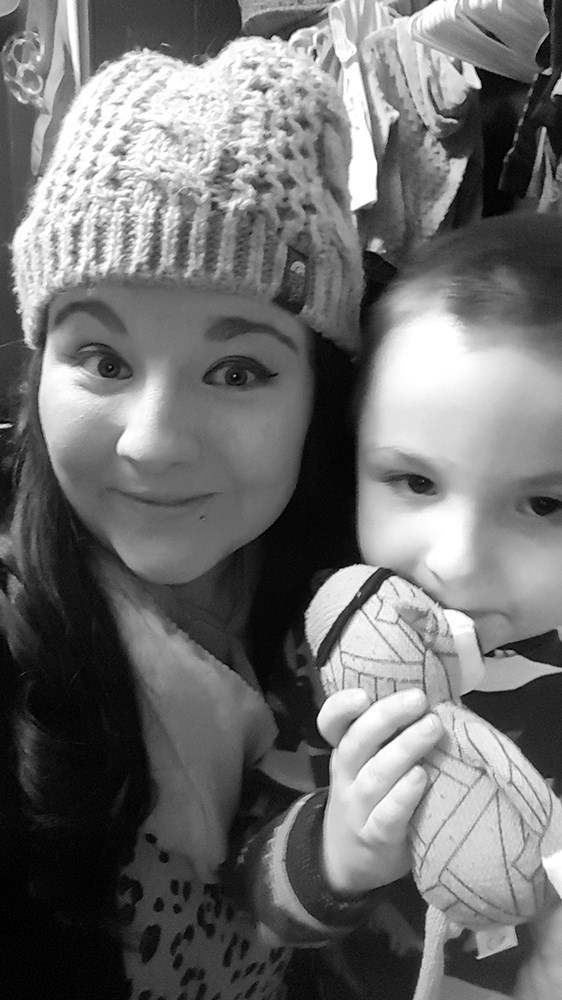Midale’s Katie Emde has become well-known this year for her fundraising efforts for autism.
She was the top fundraiser in Canada for the Inside-Out for Autism initiative in April, which supported Saskatchewan Families for Effective Autism Treatment.
But her latest effort to raise awareness about the challenges facing families with autism took her to the Saskatchewan legislature on Dec. 6, where she talked about the experiences of her and her husband Landon, individualized funding available and supports in the education system for children with autism.
The couple's son, Avery, has been diagnosed with autism.
“Due to the recent (provincial) budget cuts and the different school systems within the province, families are having a hard time sending their children to school,” Emde said in an interview with the Mercury.
Families want to ensure the schools and school division are providing the best education and plans possible for children to learn.
“There is a lack of supports, and really and truly, not only are the kids that are affected not just with autism, but with any special needs or disability,” said Emde.
She said there aren’t occupational therapists available in the school this year. Last year there was a therapist in the school division who would come into the schools and deal with tough situations, think of new strategies, help the students interact with the other kids and handle other tasks.
She also finds there is a lack of adequately-trained educational assistants.
Greg Ottenbreit, the minister for rural and remote health in Saskatchewan, spoke to the issue in a media scrum after Emde’s appearance in the legislature. He said the government has focused on autism services and supports for families.
He said funding has grown from $500,000 per year in 2007-08 under the previous government, to $8 million this fiscal year.
“We’re moving towards the individualized funding in the coming years,” said Ottenbreit. “Next year we’ll be looking at $4,000 per client, and over the years, moving up to $8,000 per individual.”
There have been different support services in major centres that focus on autism and supports, whether it’s in schools or communities. Individualized funding would give people a chance to access something that might not currently be available.
“It gives them those funds that they can access those services where they find them and do what they feel is best for a family member,” said Ottenbreit.
They would also have the money to travel to communities to access those services.
Emde said people are turning to her and her husband Landon to speak about issues related to autism, to get the best education possible and the best supports they could receive.
Many of these families don’t know where to start, who to talk to or who to share concerns with. So she and her husband have been encouraging families to share their story, not just within the autism community, but to come forward to share their experiences with the education and healthcare systems.
She believes as more families discuss their experiences publicly or on social media, it will create more awareness.
Emde said her family has spoken to MLAs from both the governing Saskatchewan Party and the opposition New Democratic Party about their concerns. They want to see inclusion and for kids to be accepted.
“We just want the best for them,” said Emde.
Some families have hired private occupational therapists and speech language pathologists, she said, but other families cannot afford those services.
“Anyone that has a child on the ASD (autism spectrum disorder) or has been diagnosed with ASD knows that the majority of the time that you would hire on one of those private people, you’re charged by the hour,” said Emde.
But many of these sessions only last 15 or 20 minutes, despite paying for an hour’s time.
When there is a lack of support within the classroom, she believes it trickles down through the classroom. It affects peers and teachers, and how that teacher is able to teach the rest of the class.
“That’s what we wanted to make very clear, that … everyone is kind of struggling along, and what we’re kind of seeing right now, as of September anyways to right now, is that kids are just getting pushed through the system,” said Emde.
Emde has asked previously for the number of children in Saskatchewan with ASD. Other provinces have that number, but she hasn’t received the figure.
“We just know it’s a lot,” said Emde. “Me and my husband have reached out to families throughout the province. We are at a very large, skyrocketing number of families that we have reached out to. We’re looking at probably 800.”
Emde was invited to speak last week by Regina Rosemont MLA Trent Wotherspoon and Regina Lakeview MLA Carla Beck, who are both with the New Democratic Party. But Emde said she and her husband are trying to avoid being political, and want what’s best for their son.
She said it was an interesting experience to see how the political process worked and how things are discussed within the legislature.



